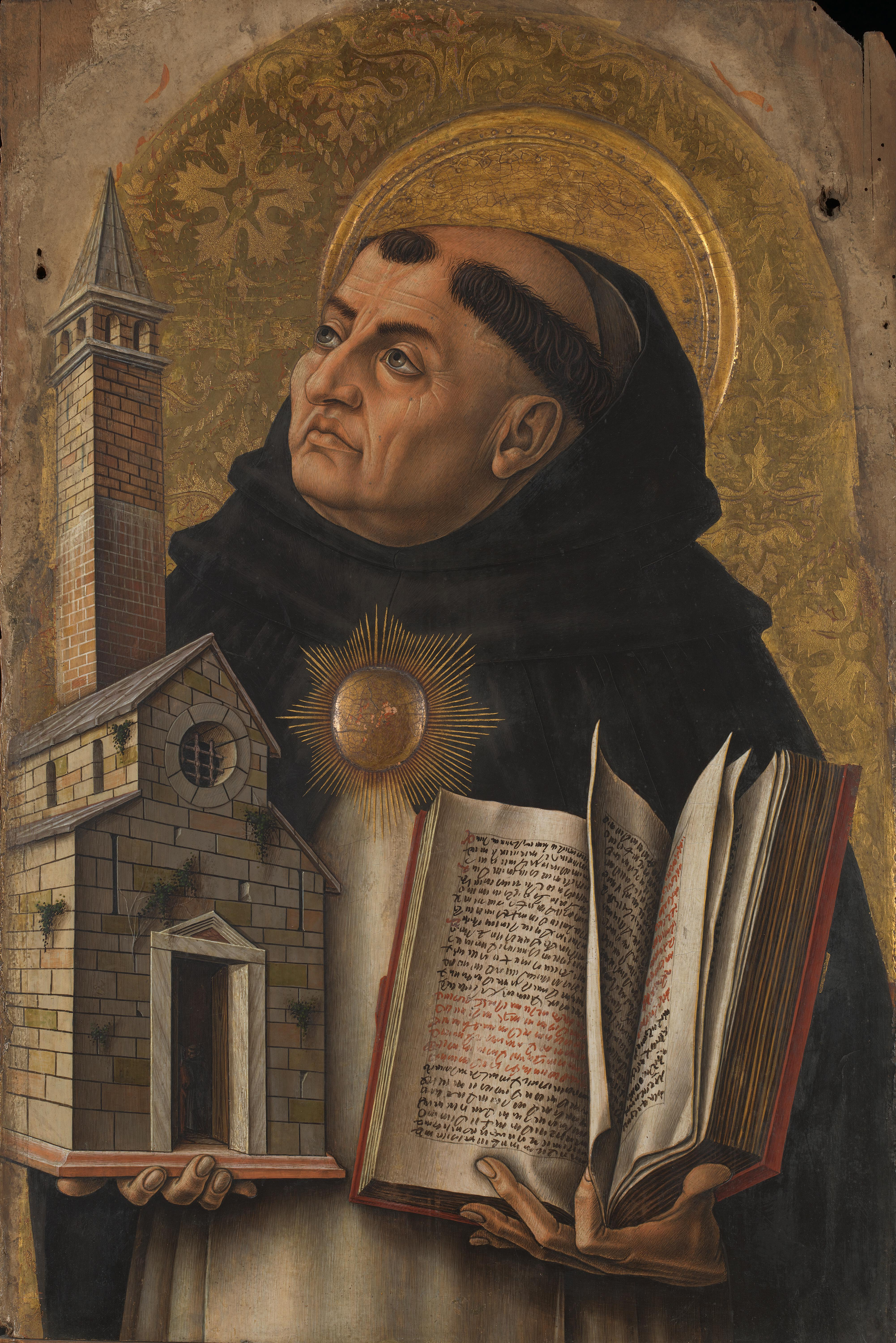Tomás de Aquino Frases famosas
Atribuídas
“Temo o homem de um só livro”
Hominem unius libri timeo. / Timeo hominem unius libri.
esta frase é citada por Paulin Limayrac, na obra "Revue des Deux Mondes", tome 7, 1844; "Revue littéraire" como de Cícero.
Atribuídas
Atribuídas
Fonte: Suma Teológia: Parte II: Questão 11 - Artigo 3 http://www.newadvent.org/summa/3011.htm#article3
Tomás de Aquino frases e citações
Tomás de Aquino: Frases em inglês
Commentary on the Psalms http://dhspriory.org/thomas/english/PsalmsAquinas/ThoPs0.htm , Introduction
“Charity, by which God and neighbor are loved, is the most perfect friendship.”
Fonte: Quaestiones disputatae: De caritate (ca. 1270) http://dhspriory.org/thomas/QDdeVirtutibus2.htm#4
“The greatness of the human being consists in this: that it is capable of the universe.”
Fonte: De Veritate (On Truth) q. 1, art. 2, ad 4
“Baptism is the door of the spiritual life and the gateway to the sacraments.”
III, q.73, 3
Summa Theologica (1265–1274)
De Potentia (On Power) q. 3, art. 6, ad 4
Gn. 2:24
I, q. 92, art. 1 (Whether the Woman should have been made in the first production of things?)
Summa Theologica (1265–1274)
Commentaria in libros Aristotelis de caelo et mundo
“All that I have written seems like straw compared to what has now been revealed to me.”
Remarks on being requested to resume writing, after a mystical experience while saying mass on or around 6 December 1273, as quoted in A Taste of Water : Christianity through Taoist-Buddhist Eyes (1990) by Chwen Jiuan Agnes Lee and Thomas G. Hand
All that I have written seems like straw to me.
As quoted in The Thought of Thomas Aquinas (1993), by Brian Davies, p. 9
Everything I have written seems like straw by comparison with what I have seen and what has been revealed to me.
As quoted in Sacred Games : A History of Christian Worship (1997) by Bernhard Lang, p. 323
Original: (la) Raynalde, non possum, quia omnia quae scripsi videntur mihi palae.
Summa Contra Gentiles, III,126,3
Sermon on the Apostles' Creed, 13-14
